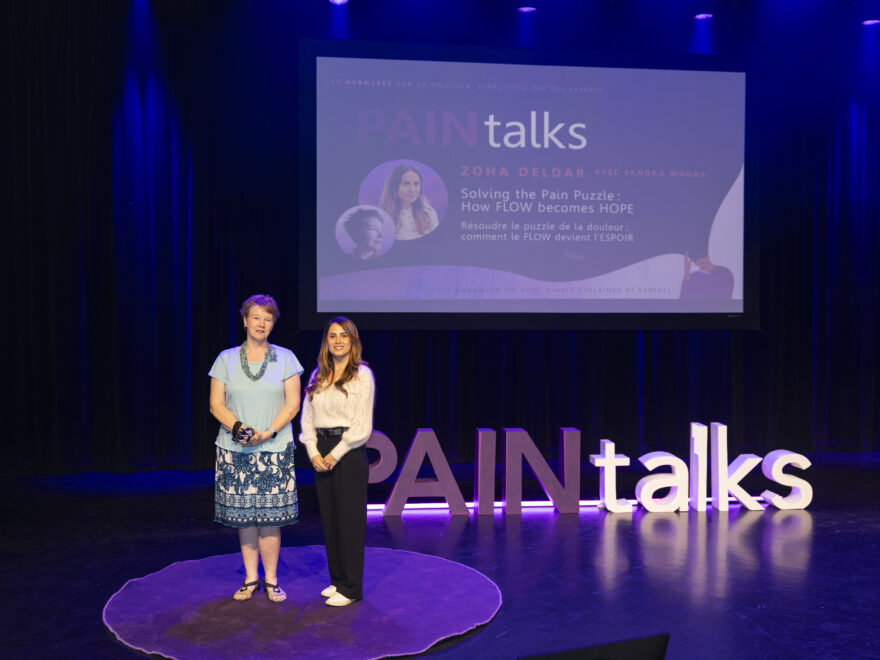On Thursday night I was on stage at The Gesù theatre-space in downtown Montréal, co-presenting a TEDtalk-style session at PAINtalks 2024 with neuroscientist Zoha Deldar, PdD. It was an honour to help highlight her research from a chronic pain patient perspective, as it resonates so deeply with me. It also aligns with my Art Despite Pain initiative (#ArtDespitePain), using my artwork to raise awareness of chronic pain while using my art-practice to encourage others living with persistent pain to try creative activities as a form of brain-plasticity or neuroplasticity training for their own pain.
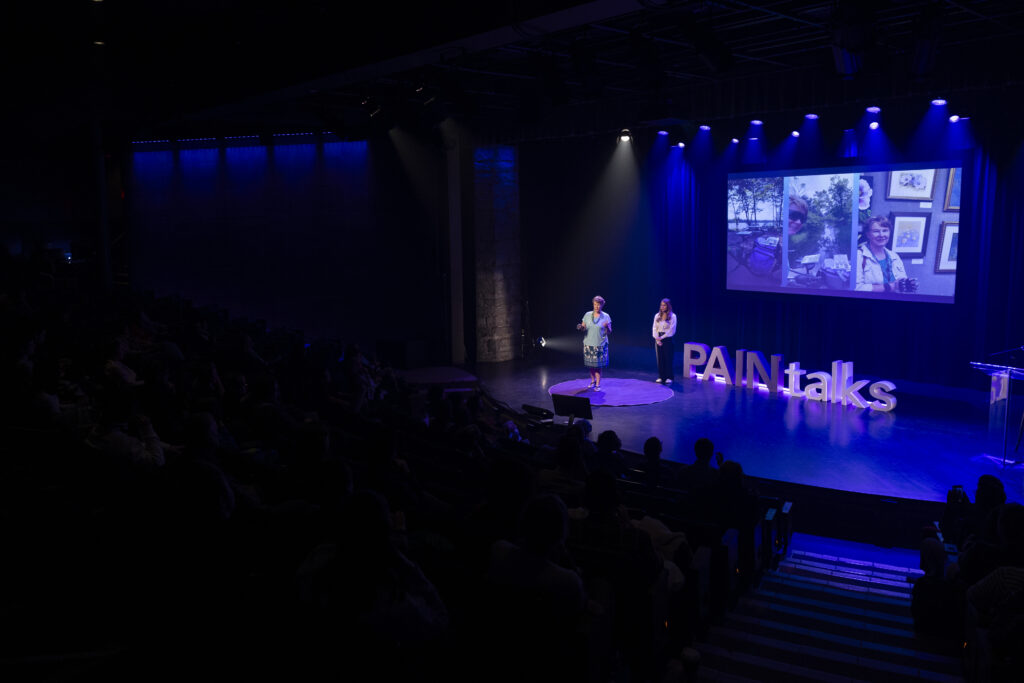
PAINtalks, by the way, is an annual event hosted and organized by the Québec Network of Junior Pain Investigators (QNJPI; in French, the Réseau québécois des étudiants-chercheurs sur la douleur or RQECD). It’s a hybrid event with a live theatre audience, live-streaming, and professional video-recording; video links will be available on the YouTube channel of the QNJPI once the editing has been completed (to provide a link to the full event, as well as to each individual presentation). I’ll include those video links here, in a future post, once they go live online.
As this event is held in Québec, generally in a different city each year, it’s offered in a bilingual English/French format; the presenters speak in their preferred language of the two, with simultaneous translation into the other language available to in-person and online viewers. It’s a truly well-organized event, and something that I’m deeply proud to have been involved with as a Patient Partner.
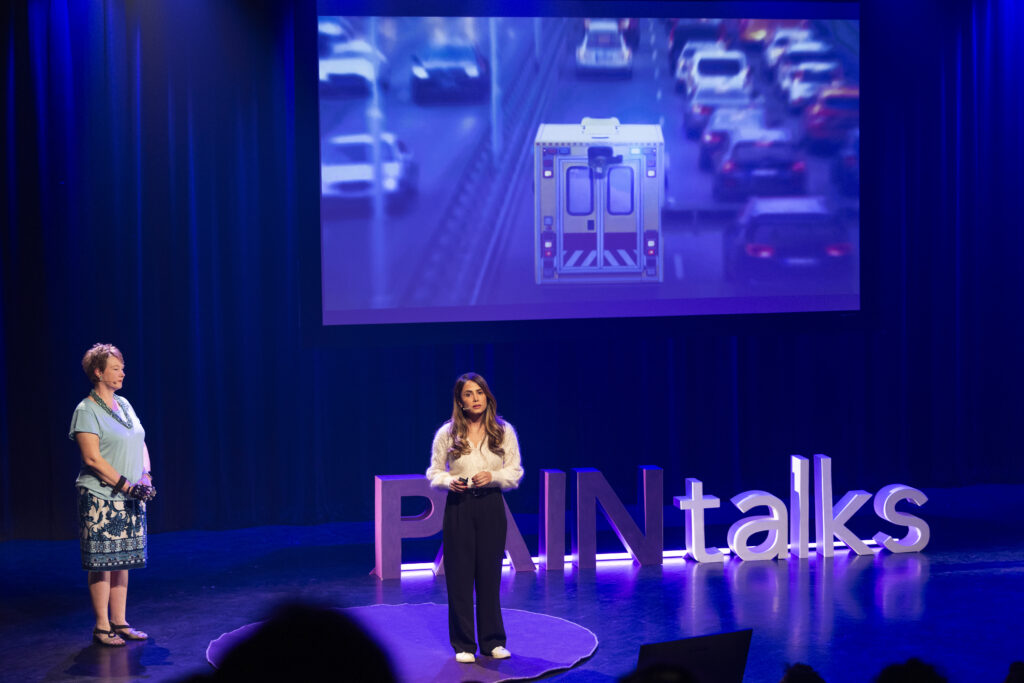
I should mention that we all knew before the event even began that we’d be presenting to at least 900 people that night; there were well over 100 people in the theatre-space, and the rest had registered to receive a link to the livestream… with the understanding that many were probably watching with someone else. If only half the virtual viewers were watching with another person, that would add 450 viewers for a possible total of 1350!
“This bilingual, free and open to all initiative is inspired by TED-style presentations and aims to provide the audience with presentations focused on the field of pain. Speakers are asked to discuss controversies and advancements in the field of pain.” ~ PAINtalks website
Dr. Deldar’s research is on Flow Theory, the concept that when a person is so deeply engaged in doing something that they love – or about which they feel passionate – that this can lower their perception of pain. The classic example is when you become so absorbed in doing something interesting and pleasant, that you lose track of time. This happens to me quite often when I’m painting or sketching, to the extent that I’ll often forget to eat when I’m alone; before my sweetheart retired, he’d often have to text me from his office, to remind me to eat breakfast and lunch.
The title of our talk was “Solving the Pain Puzzle: How FLOW becomes HOPE”, and we actually incorporated a kind of word ‘puzzle’ into our presentation – you’ll have to wait for the YouTube videos to see what I mean!
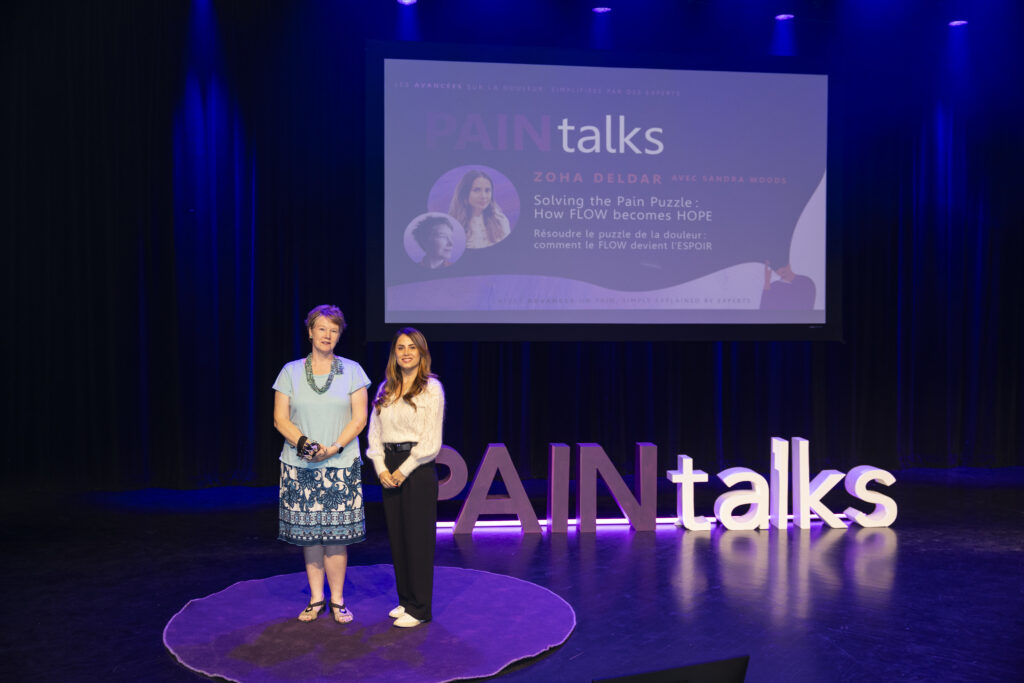
The bottom line, though, is that her research shows that applying Flow Theory can reduce pain by almost 30% – which is absolutely amazing. The downside is that it’s a temporary effect, that lasts only as long as a person is immersed in that activity, but it opens new areas for neuroscience to tackle chronic pain. It’s also important to note that Flow Theory isn’t about art; Dr. Deldar has been involved in other research that shows similar pain-reduction effects when a person does other things that they love, like composing or playing music, gaming, playing chess – anything for which a person feels a passion.
I’m sending a giant Thank You to Zoha, for having invited me to co-present this talk with her – the first co-presentation in the 9-year history of this event. And I have to also give a giant Thank You to the volunteers from the QNJPI who organized and presented the entire PAINtalks 2024 event. I was blown away by the amount of work they did behind the scenes, and even on-stage for some of them, while still dealing with their own studies and/or research obligations. Thank you all, so much.
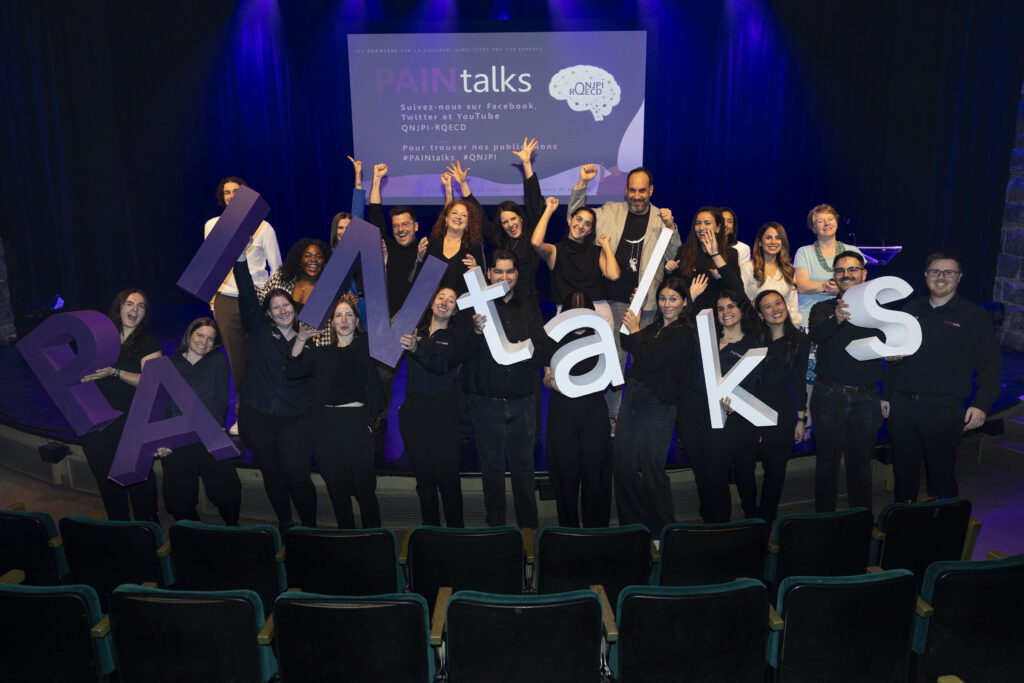
Finally, as always, thanks so much for stopping by. Keep well, stay safe, and look after yourself. You’re worth it, and you deserve it. And please feel free to reach out over on Instagram or Twitter – or find me with my #ArtDespitePain hashtag. I’ve had to disable the Comments feature here on the blog, as it was too much for me to handle with my Mild Cognitive Impairment from a pesky rare disease named CRPS or Complex Regional Pain Syndrome (formerly called RSD or Reflex Sympathetic Dystrophy) – but I do love to hear from you!

